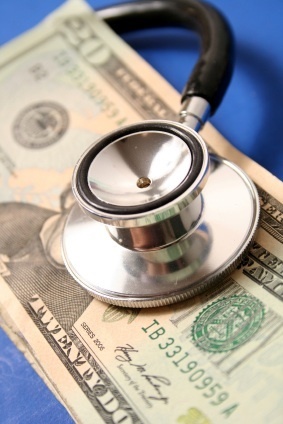by
Joan Trombetti, Writer | September 10, 2007

A simple program can reduce disease
According to Dr. William Davis and colleagues -- developers of the Track Your Plaque program for heart disease detection and prevention -- billions of healthcare dollars could be saved each year by applying a simple program of heart disease detection and prevention in the United States.
Davis, a Milwaukee cardiologist and his colleagues have developed a cost model to predict how much money could be saved by the adoption of new preventive strategies on a broad scale. Dr. Davis stated that the cost savings are startling, and if males in the 40-49 age range were to undergo a simple CT heart scan for early detection of coronary heart disease, followed by a purposeful yet focused program of prevention using widely available tools, the cost model shows that the American public would save over $20 billion annually. Extending this calculation to the broader population would multiply savings according to Davis.
The single largest healthcare category in the US is heart care, and those who can afford it spend an increasingly greater portion of their disposable income to maintain it. The Agency for Healthcare Research and Quality predicts that, at the current rate of growth, healthcare costs will soon balloon to absorb 20% of American Gross Domestic Product (GDP), or about $4 trillion in the next 10 years.



Ad Statistics
Times Displayed: 2548
Times Visited: 12 Fast-moving cardiac structures have a big impact on imaging. Fujifilm’s SCENARIA View premium performance CT brings solutions to address motion in Coronary CTA while delivering unique dose saving and workflow increasing benefits.
The "crash and repair model" that Davis and his group have dubbed the conventional procedure-based approach to heart disease management focuses on urgent procedural intervention that takes place in hospitals, and is extremely costly. As reported by the American Heart Association, a heart catheterization (performed 3,553 times per day, seven days a week) costs an average of $24,893; a coronary bypass operation (1,170 times every day, seven days a week) -- averages $67,823 (hospital costs, 2004 - the latest year for which data is available) And, this does not include long-term costs incurred in the years following the procedure or time lost from work.
High payments to physicians and hospitals; the exceptional costs of high-tech, high-ticket heart procedures could become increasingly unnecessary if better heart disease preventive practices were delivered on a broad scale -- "more or less like seatbelts, preventive measures for heat disease are more cost effective and extract a far lower toll in human suffering than the "crash and repair" approach," says Dr. Davis. He went on to say that his calculations bear out the enormous savings that are possible, and that all of the tools necessary to deliver a method of early heart disease detection and prevention are now available -- they just need to be taken advantage of. The cost calculator program can be found at www.trackyourplaque.com - an informational and education website devoted to showing people how CT heart scans can be used as a start for a program of heart disease prevention and reversal.
Back to HCB News

